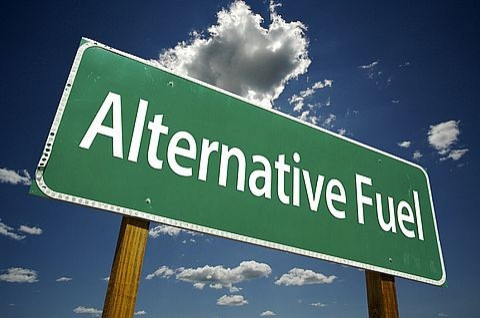Future for alternative fuels is closer than you think, says BCG report

Advanced biofuels, solar thermal power and solar photovoltaic's are all on a path to being cost-competitive with fossil fuels, a new study by the Boston Consulting Group (BCG) notes, before asserting that the future of alternative energy is arriving faster than you might think.
There is no question that conventional energy sources will constitute the bulk of the world's energy for at least the next couple of decades, said Balu Balagopal, a Houston-based senior partner at BCG and a co-author of the report. But a few of these green-energy technologies will make their presence felt very likely within the next few years. Their costs are falling quickly and significantly, pushing them closer to where they can compete on price-without subsidies-against fossil-fuel-based sources.
As they become more cost-competitive, their adoption will be constrained more by barriers such as the need for new supporting infrastructure. However, we believe these barriers will likely prove surmountable, added Balagopal.
Commenting on the electric vehicle (EV) scenario, the report said, Even as EV economics become attractive for certain customers, several other hurdles will need to be overcome before the vehicles can achieve a large share of the total car fleet. The lag time to deployment, public charging station infrastructure, grid infrastructure, advantaged-disadvantaged cycle and raw material constraints pose a few of the most critical hurdles.
EVs will become economically attractive for lead market segments by 2020. Without significant declines in battery costs, long payback periods will be a barrier to rapid growth. Even though EVs are economically attractive, fleet turnover will still take many years. The need for charging infrastructure and grid investments could slow growth. EVs will need low-carbon power-generation infrastructure to be a solution for carbon emission reduction.
In fact, the BCG study suggests that biofuels could significantly disrupt the status quo in fuel markets if remaining obstacles are overcome, but EVs, the study warns, will have limited timely impact. Even under best case adoption scenarios through 2020, the time it takes to turn over the current fleet, otherwise known as the legacy effect, would require decades of new sales. Biofuels on the other hand could plausibly replace much gasoline and be implemented without.
Governments across the world have set aside billions of dollars in the form of subsidies for early adopters of these alternative energy cars and to boost production of batteries for such vehicles despite persisting doubts about how many people will actually buy them.
The Department of Energy said it is investing $2.85 billion in electric vehicles of which $2 billion will go to help US carmakers produce advanced vehicle batteries and drive train components. Around $400 million will be invested to buy, test, and deploy different types of electric vehicles in the marketplace, and $300 million in cost-share projects under the 'Clean Cities' program.
© Copyright IBTimes 2025. All rights reserved.





















